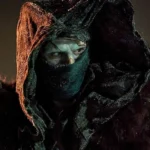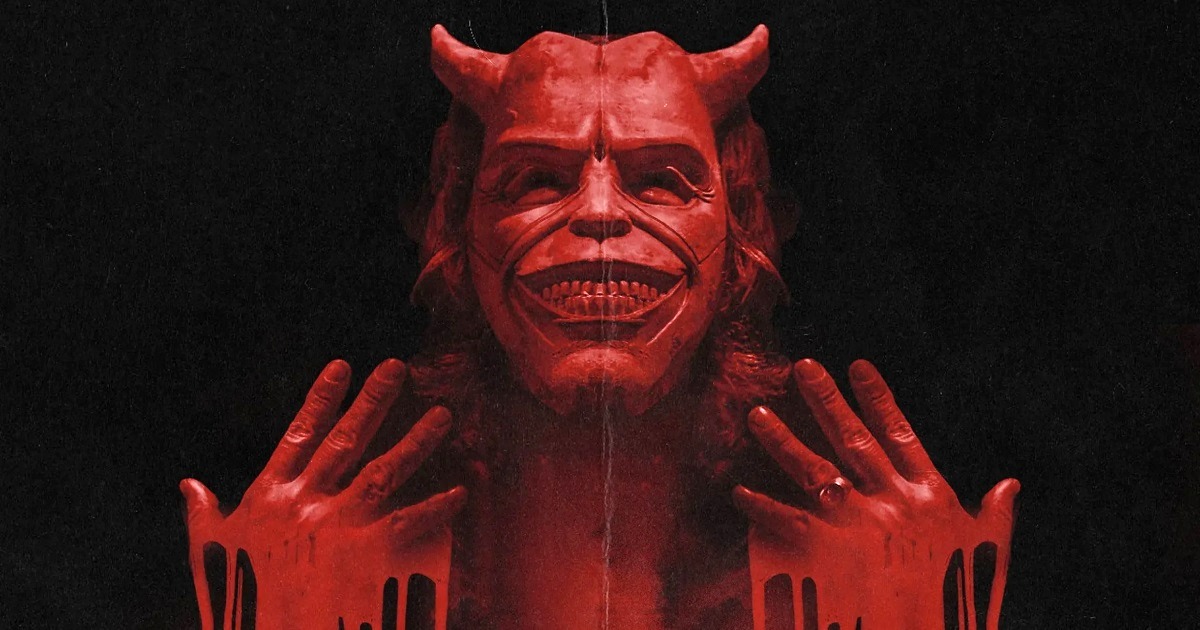by Cyn’s Corner
When “Black Phone 2” was announced, I wasn’t sure what to expect. The first film wrapped up its story so neatly that I wasn’t convinced a sequel was necessary. I deliberately avoided the trailers, but I gathered enough to realize that this time, even though the Grabber is gone, his presence lingers in the supernatural realm. His power can also bleed into the real world, and that setup intrigued me.
To my surprise, the movie is actually pretty good. Not perfect, but solid — and importantly, not one of those horror sequels that goes off the rails just to keep a franchise alive.
The film opens in 1957 in the Rocky Mountains of Colorado, where a mysterious incident at a youth camp sets up the central mystery. From there, we jump to 1982, where our protagonists — now older teens — are still reeling from the traumatic events of the first film.
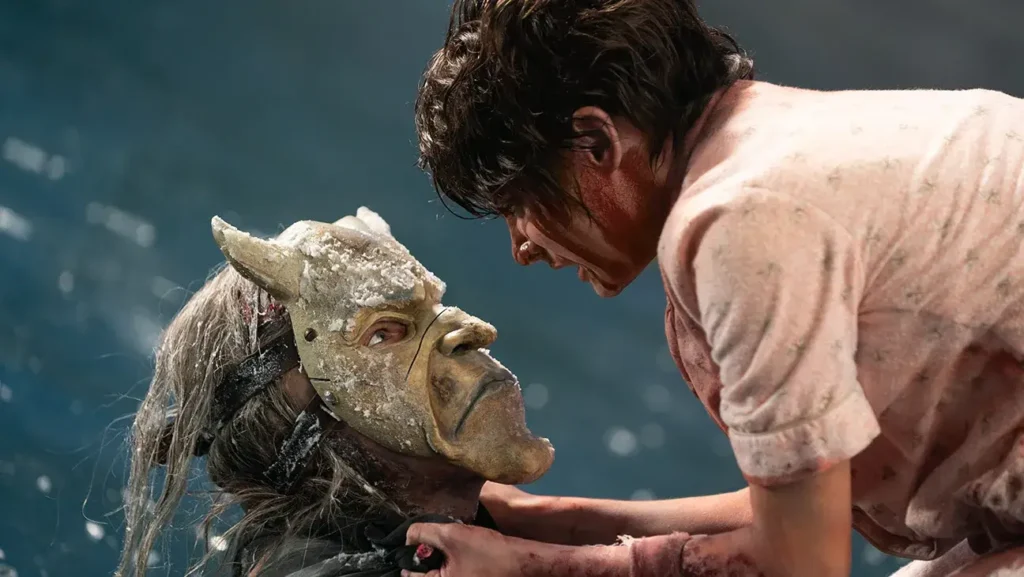
Finn, especially, struggles with what feels like PTSD, similar to how “Halloween” (2018) portrayed Laurie Strode’s decades-long trauma. Meanwhile, his sister Gwen continues to experience prophetic dreams — only now they’re stronger and more vivid, blurring the line between the dream world and reality. When her nightmares begin affecting her waking life, the film starts to evoke the dreamlike horror of “A Nightmare on Elm Street 3: Dream Warriors.”
The siblings soon discover connections between their family’s past, the Grabber’s origins, and a mysterious camp called Alpine Lake, where the story’s chilling secrets begin to unfold.
The acting across the board is strong. Mason Thames and Madeleine McGraw once again bring real emotional depth and sibling chemistry. Their relationship remains the emotional core of the story — tender, funny, and occasionally heartbreaking.
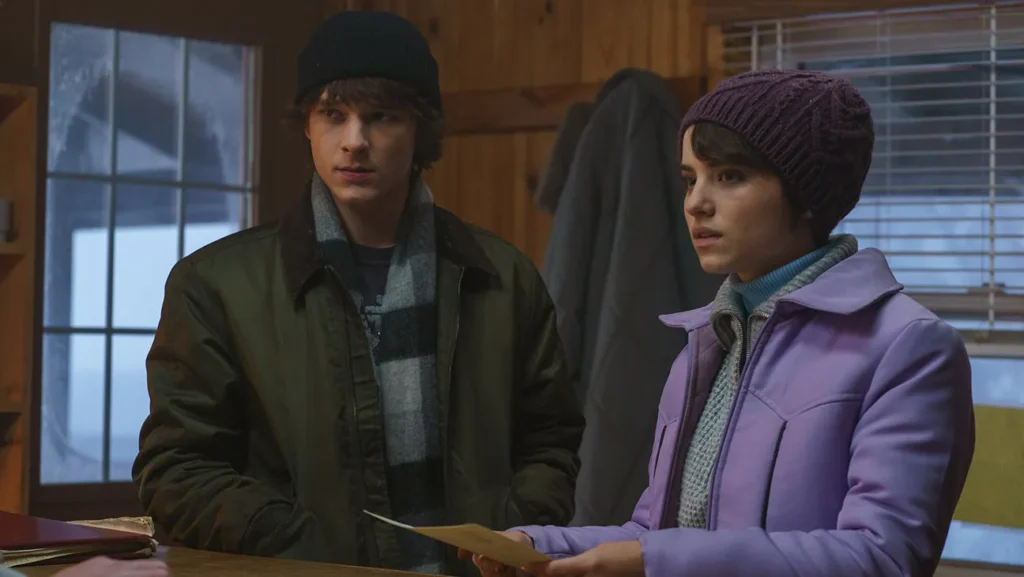
Their father, played by Jeremy Davies, is now sober and trying to rebuild trust with his children after years of alcohol-fueled abuse. There’s a fragile peace between them, captured perfectly in small, human moments — like when he and Finn silently disapprove of Gwen’s new boyfriend with arms crossed and grim expressions. Those lighthearted moments of humor go a long way in easing the tension.
Demián Bichir joins the cast in a new role. I didn’t know he was in the film going in, so seeing his name appear on screen was a pleasant surprise. He brings gravitas and warmth, as he always does, and it was great to see a Mexican actor of his caliber in a big horror sequel like this.
The film’s dream and flashback sequences are some of its most visually engaging elements. They’re shot in a grainy, static, and slightly distorted, disturbing style — not in an annoying or irritating way, but enough to convey that surreal, fragmented quality dreams often have. It’s a clever way to distinguish between reality and dreams or memories.
The camp setting also gives the film an ‘80s horror flavor — just enough of those classic camp-slasher vibes to honor the genre while still telling its own unique story.
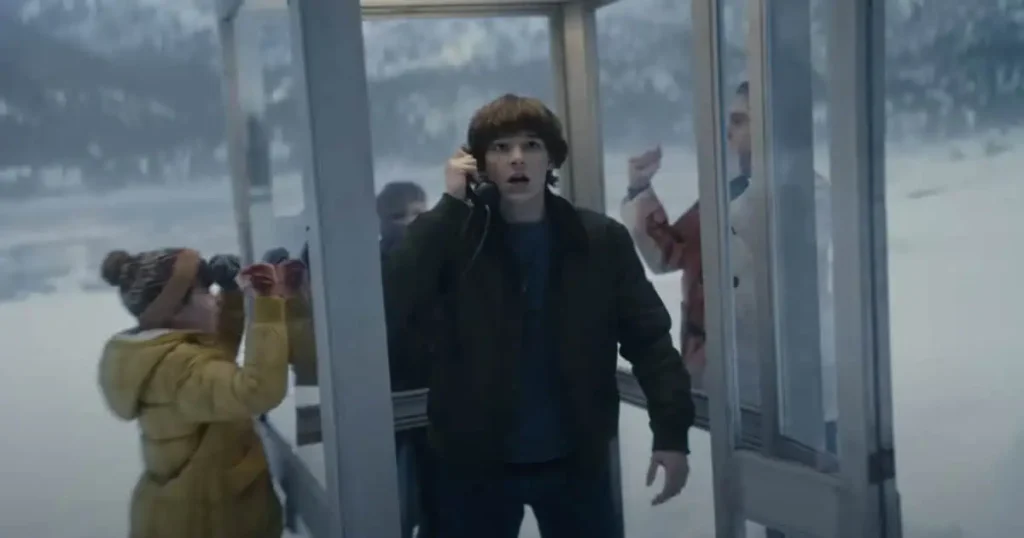
There’s a lot to like here. The supernatural mystery deepens the world established in the first film without feeling redundant, and the emotional beats still land. The comedic touches (especially from the sister’s foul mouth) work as effective tension breaks.
That said, a few minor things stood out. The timing of their trip to the camp makes little sense to me — how are they planning to be gone for weeks while school’s still in session? And one late scene involving a phone conversation seems to bend the supernatural ‘rules’ the film itself established. Lastly, some of the backstory connections — particularly between their mother, the Grabber, and the camp — verge on feeling too interconnected, as if the writers wanted everything from the first film to the second to tie up a little too neatly.
Still, these are minor nitpicks. None of them broke the film or ruined the experience for me.
“Black Phone 2” may not have the novelty of the original, but it’s a respectable follow-up that expands the mythology and keeps its emotional grounding intact. The performances are strong, the scares are effectively creepy, and the story feels like a natural extension rather than a cash grab.
Here’s hoping this is the last chapter, though — not because it’s bad, but because it ends in a way that feels complete. No need to drag the Grabber’s ghost into endless sequels.
If you liked the first “Black Phone,” this one’s worth seeing — especially on the big screen.
Rating: 7.5 out of 10


